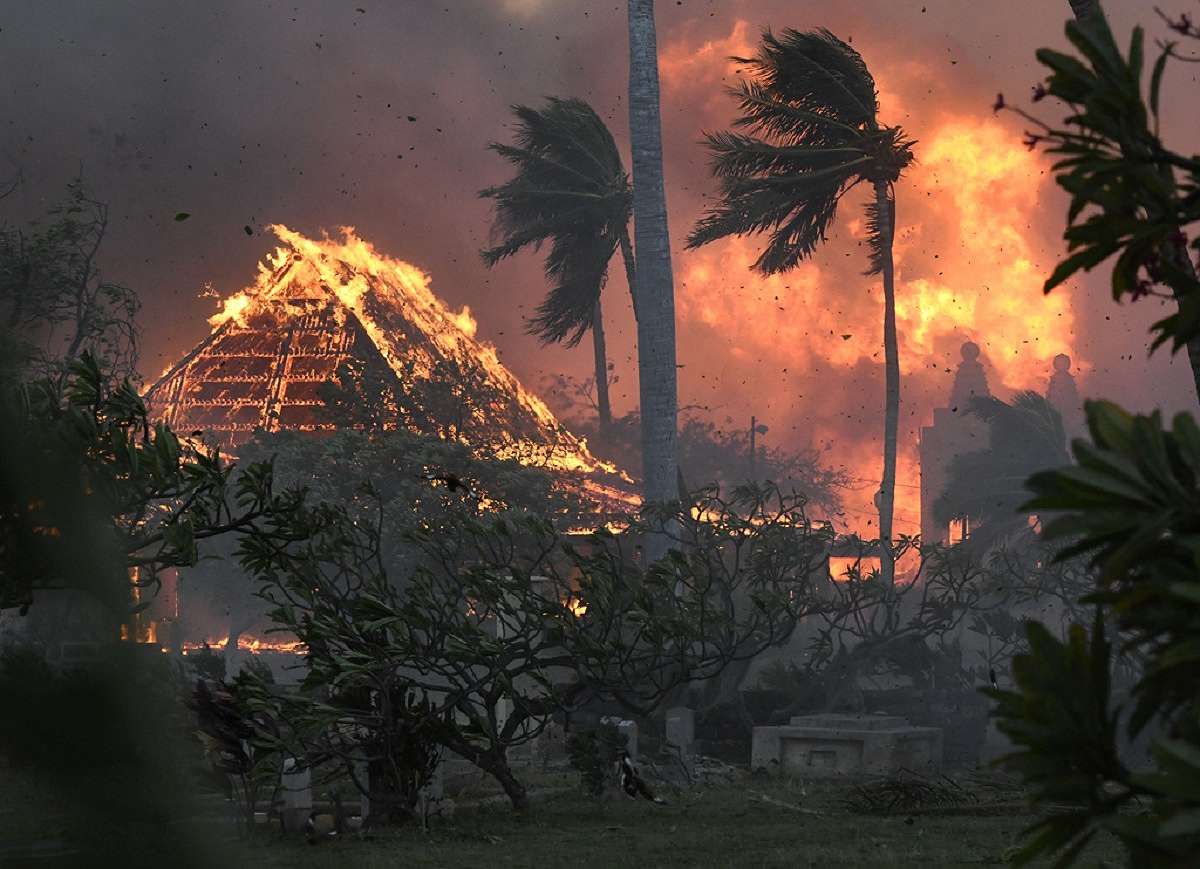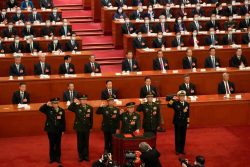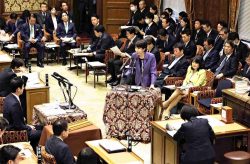Hawaii Supreme Court Agrees to Weigh in on Issues Holding up $4B Wildfire Settlement

The hall of historic Waiola Church in Lahaina and nearby Lahaina Hongwanji Mission are engulfed in flames along Wainee Street on Aug. 8, 2023, in Lahaina, Hawaii.
14:04 JST, September 27, 2024
HONOLULU (AP) — Hawaii’s Supreme Court will consider questions about issues that threaten to thwart a $4 billion settlement in last year’s devastating Maui wildfires.
A Maui judge last month agreed to ask the state high court questions about how insurance companies can go about recouping money paid to policyholders.
The Supreme Court issued an order Wednesday accepting the questions and asking attorneys on all sides to submit briefs within 40 days.
It was expected that the battle over whether the settlement can move forward would reach the state Supreme Court.
“It’s still a big step even though it was expected,” Jake Lowenthal, one of the attorneys representing individual plaintiffs, said Thursday. He added that the fate of the settlement is riding on how the court answers the questions.
Insurance companies that have paid out more than $2 billion in claims want to bring independent legal action against the defendants blamed for causing the deadly tragedy. It is a common process in the insurance industry known as subrogation.
“We look forward to making our case before the Hawaii Supreme Court about the importance of maintaining insurers’ independent lawful rights to subrogation, which is the industry standard nationally and protects the interests of all policyholders,” Vincent Raboteau, an attorney for the insurance companies, said in a statement.
Judge Peter Cahill on Maui ruled previously insurers can seek reimbursement only from the settlement amount defendants have agreed to pay, meaning they can’t bring their own legal actions against them. The settlement was reached on Aug. 2, days before the one-year anniversary of the fires, amid fears that Hawaiian Electric, the power company that some blame for sparking the blaze, could be on the brink of bankruptcy. Other defendants include Maui County and large landowners.
Preventing insurers from going after the defendants is a key settlement term.
“If they rule that the insurance companies do have an independent right to pursue their own suits against the same defendants then the settlement agreement is null and void, basically,” Lowenthal said.
If the Supreme Court says that insurance companies can’t do that, then the claims process can begin to get money to fire victims, he said.
One of the questions before the justices is whether state statutes controlling health care insurance reimbursement also apply to casualty and property insurance companies in limiting their ability to pursue independent legal action against those who are held liable.
Lawyers representing the insurance companies have said they want to hold the defendants accountable and aren’t trying to get in the way of fire victims getting settlement money.
Individual plaintiffs’ attorneys are concerned allowing insurers to pursue reimbursement separately will subvert the deal, drain what is available to pay fire victims and lead to prolonged litigation.
Top Articles in News Services
-

Survey Shows False Election Info Perceived as True
-

Hong Kong Ex-Publisher Jimmy Lai’s Sentence Raises International Outcry as China Defends It
-

Japan’s Nikkei Stock Average Touches 58,000 as Yen, Jgbs Rally on Election Fallout (UPDATE 1)
-

Japan’s Nikkei Stock Average Falls as US-Iran Tensions Unsettle Investors (UPDATE 1)
-

Japan’s Nikkei Stock Average Rises on Tech Rally and Takaichi’s Spending Hopes (UPDATE 1)
JN ACCESS RANKING
-

Producer Behind Pop Group XG Arrested for Cocaine Possession
-

Japan PM Takaichi’s Cabinet Resigns en Masse
-

Man Infected with Measles Reportedly Dined at Restaurant in Tokyo Station
-

Israeli Ambassador to Japan Speaks about Japan’s Role in the Reconstruction of Gaza
-

Videos Plagiarized, Reposted with False Subtitles Claiming ‘Ryukyu Belongs to China’; Anti-China False Information Also Posted in Japan

























